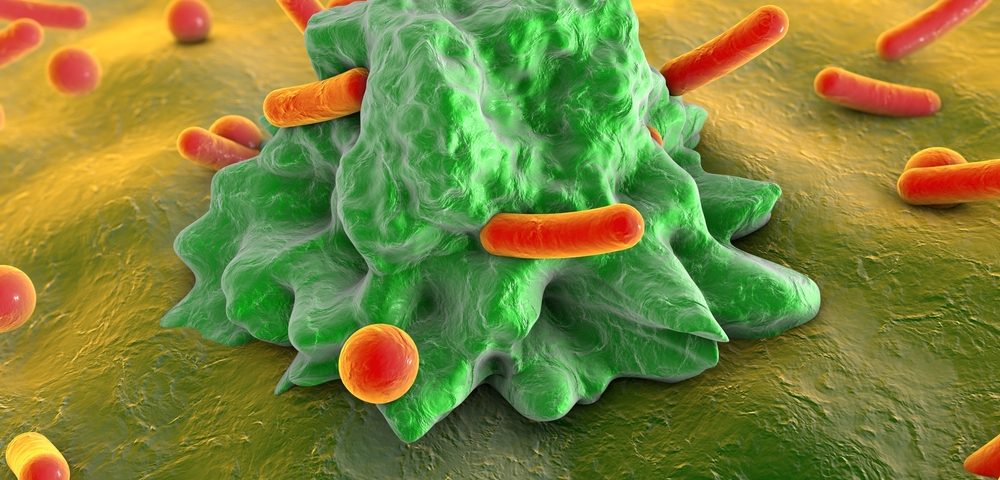Researchers may have found a way of improving cancer patients’ responses to therapies that boost the immune system. According to a recent study, blocking a molecule produced by macrophages within a tumor site appears to enhance the ability of T-cells to recognize and fight cancer cells.
The study, “PI3Kγ is a molecular switch that controls immune suppression,” was developed at the University of California, San Diego School of Medicine, and published in Nature.
“Immunotherapies, such as T cell checkpoint inhibitors, are showing great promise in early treatments and trials, but they are not universally effective,” Judith A. Varner, PhD, professor in the Departments of Pathology and Medicine at the School of Medicine, said in a press release. “We have identified a new method to boost the effectiveness of current immune therapy. Our findings also improve our understanding of key mechanisms that control cancer immune suppression and could lead to the development of more effective immunotherapies.”
When the body is confronted with pathogens, injury, or disease, macrophages are the first immune cells sent to deal with the problem, engulfing the foreign pathogens. But these cells, a type of white blood cell, are also responsible for producing pro-inflammatory proteins that call T-cells to the injury site and activate them.
Eventually, when the health threat is eliminated, macrophages switch gears and start expressing anti-inflammatory proteins that stimulate tissue repair.
But sometimes, in settings of chronic inflammation, macrophages never stop producing the pro-inflammatory proteins that eventually kill or transform normal cells. In cancer, the opposite happens; macrophages express anti-inflammatory proteins that work to prevent immune cells from attacking tumor cells.
Varner and colleagues found that macrophages were inducing this immune suppression in cancers through expression of the protein PI3Ky. Blocking this protein activated an immune response, leading to reduced tumor growth in animal models with implanted tumors.
The researchers also found that PI3Ky inhibition made tumors more sensitive to existing anti-cancer drugs, and synergized with other therapies aimed at boosting the immune system to eradicate tumors and extend survival.
The study also identified PI3Ky-regulated genes that were significantly associated with survival in head and neck squamous cell carcinoma patients. Patients with a low PI3Ky activity profile had 100 percent survival at three years, while those with high PI3Ky activity had a 56 percent survival.
“Recently developed cancer immunotherapeutics, including T cell checkpoint inhibitors and vaccines, have shown encouraging results in stimulating the body’s own adaptive immune response,” said Ezra Cohen, MD, a study co-author who heads the cancer immunotherapy program at Moores Cancer Center. “But they are effective only on a subset of patients, probably because they do not alter the profoundly immunosuppressive microenvironment created by tumor-associated macrophages. Our work offers a strategy to maximize patient responses to immune therapy and to eradicate tumors.”
This study builds on previous work developed by Varner and colleagues, showing that blocking the cross-talk between B-cells and tumor macrophages inhibited pancreatic ductal adenocarcinoma growth in mice and improved their responsiveness to chemotherapy.
In May, Varner also reported that blocking PI3Ky activity in tumor macrophages enhances the immune response to pancreatic ductal adenocarcinoma (PDAC) cells in animal models, and inhibits tumor cell invasion, metastasis, and fibrosis.
“PDAC has one of the worst 5-year survival rates of all solid tumors, so new treatment strategies are urgently needed,” said Megan M. Kaneda, PhD, an assistant project scientist in Varner’s lab and collaborator on all of the papers.


